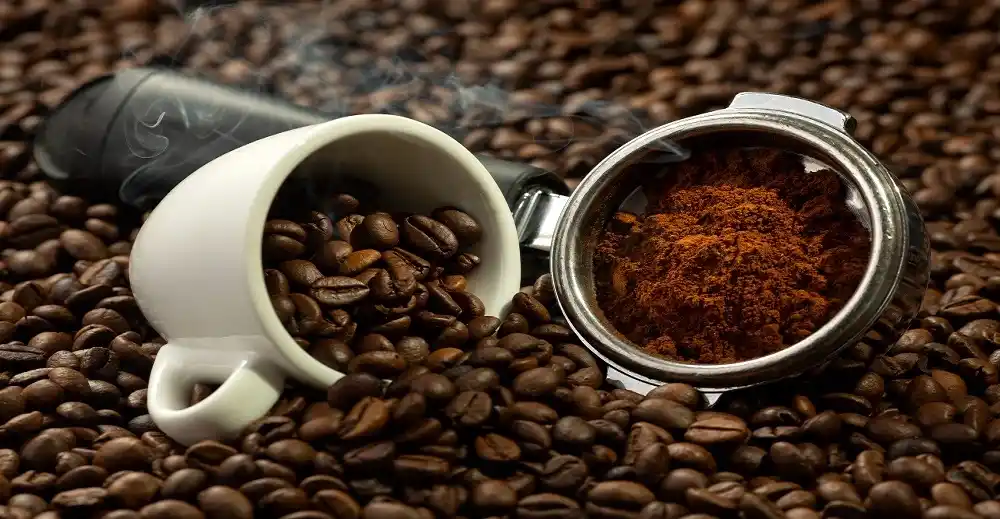Global Coffee Bean Market Trend – Invigorating & Healing the World

Increasing independent cafes, penetration of franchise outlets in newly industrialized countries, rising affluence making relatively expensive specialty coffees more affordable, expanding food and beverage applications, growing awareness of health benefits as well as increasing personal care applications are few of the factors, among others that are poised to driving the global coffee bean market during the next few years.

Across the beverage industry, the consumption habits are more geared towards chilled on-the-go coffee beverage options made commercially available in a variety of flavors that eliminates the need to wait in a queue, albeit the coffee bean market still caters to a healthy portion of traditional coffee drinkers. Moreover, there is always an ample scope of product innovation in areas like flavors, functionality, packaging, processing as well as in the infused coffee segment, leading to anticipated growth in the global coffee bean market. Also, coffee beans are now increasingly acknowledged for its health benefits due to polyphenols and phenolic constituents which contains Chlorogenic acids that are known to have certain therapeutic properties, which include antioxidant, antiviral, hepatoprotective, hypoglycemic properties. These have led to their applications personal care products like the Australian beauty brand Frank Body’s Express-O Scrub, among others, reportedly launched in 2018, a creamier version of its coffee body scrubs, and contains Robusta coffee grounds among other as its ingredients.
Applications Pertaining to Food and Beverage Are Going to Hold a Substantial Share of the Market Among Other End-Users
Form artisanal brewing techniques through innovations in flavors to manufactures of all sizes has been increasingly engaging in investments. The growing health awareness has resulted in increased consumption of RTD coffee which is acknowledged more as a source of energy than its traditional attribute of a pick-me-up. Another is that of cold brew techniques which by way of steeping coffee grounds in water at cold-to-room temperature for 16-24 hours results in the reportedly more caffeinated simultaneously less acidic coffee beverage. With respect to the ready-to-drinks options, the growing investments in product innovation are obscuring the lines that once delineated categories as exemplified by the reported launch of Pabst Blue Ribbon hard coffee by the Pabst Brewing Company, in December 2019, which is in essence, a malt-based beverage that is made with coffee derived from a blend of Arabica and Robusta beans, creamy, rich milk vanilla flavor and alcohol (5% ABV) with 30 mg of caffeine per can. Again in 2019, it was reportedly announced that Jägermeister will be unveiling a new alcoholic cold brew coffee with 33% alcohol by volume (ABV), which was expected to be commercially available in January 2020. The beverage is reported to contain 10% of the caffeine with the flavor of Arabica coffee, among others. These developments are further expected to drive the market for coffee beans.
Global Coffee Roast and Ground Exports (In Thousand 60-Kilogram Bags)
.png)
Source: USDA
Another driver which the food and beverage industry is witnessing with regards to global coffee bean market is that of the magnitude of disruption brought about cannabis, leading to CBD infused coffee drinks as evidenced by the launch of Ready-to-Drink CBD-Infused Iced Coffee made available in cans by Elev8 Brands, Inc. (OTCQB: VATE), 2019. Flavor-wise too, innovations like Costa Coffees launch of Honeycomb flavor range reportedly in July 2020, are leading to an expansion of this segment. This flavor range will be reportedly creamier and also has a cold brew variant where it has been brewed for 20 hours and the underscored with honeycomb syrup. Further, there also have been partnerships to create new drinks and make it commercially available to grocery and convenience stores like that of ready-to-drink Starbucks Nitro Cold Brew brought about by a partnership between Starbucks and PepsiCo are made commercially available Black, Vanilla Sweet Cream and Dark Caramel varieties. Further, Pernod Ricard’s Kahlua reportedly launched in July 2020, Nitro Cold Brew made available in 6.8 fluid ounce can with 4.5 % ABV and Arabica cold brew, among others, as ingredients. Further, due to wide acceptance coffee as a flavor for edibles that includes snacks, confectionaries, among others are also leading quite a few product innovations.
Emerging economies like that of Vietnam are also witnessing product innovations for example world’s first authentic Vietnamese Cold Brew Coffee had reportedly announced the launch of a plant-based cold brew comprising a blend of premium Japanese matcha and coconut milk, in June 2020. The coffee beans are sourced from the family farm in Da Lat, Vietnam where the beans are grown microclimates of high altitude that results in a rich and dense coffee as well as giving rise to multi origin blends due to topographical diversity. The beans are reportedly steeped in cold water for a long duration and then brewed in small batches. This product is reportedly devoid of dairy, soy, and gluten among others, and is low in calories. Besides such product innovation, there have been certain strategic initiatives too by the players in the coffee bean market.
For instance, in December 2018 it was announced that the largest custom coffee roaster in America S&D Coffee & Tea, had reportedly announced that it was expanding its partnership with CBTL, by being the exclusive roaster and distributor across all commercial and non-commercial channels. Further in October 2019, an Italian company that produces, processes and markets roasted coffee with distribution across 110 countries called Massimo Zanetti Beverage Group had reportedly acquired a traditional coffee brand in Brazil, Café Pacaembu Ltda that was founded in 1957. Again, in July 2020, it was reported that that Nespresso plans to invest CHF 160m ($170m) to augment its production capacities in Switzerland by facilitating an expansion of its Romont production center, whose construction is due in June 2021 and poised to be operational by June 2022. Again, during the same year, specialty coffee company and a leading U.S. single-serve coffee producer and co-packer NuZee, Inc. (NASDAQ: NUZE) had reportedly announced a co-packing agreement with an Austin-based startup that roasts gold coffee Golden Ratio, with rationale facilitated the disruption of the coffee category with a craft beverage that tastes like tea with a caffeine content that is expected out of a normal coffee beverage.
Get in Touch
Interested in this topic? Contact our analysts for more details.
Latest Blogs

Solar Control Window Films Market expected to reach USD 1,224.951 million by 2030
RecentlyTop Companies Leading the Silicon-Based Capacitor Revolution
Recently
The Role of Chemical Blowing Agents in Sustainable Foaming Solutions
Recently
Top 10 Emerging Beverages Set to Dominate the Market in the Coming Years
Recently